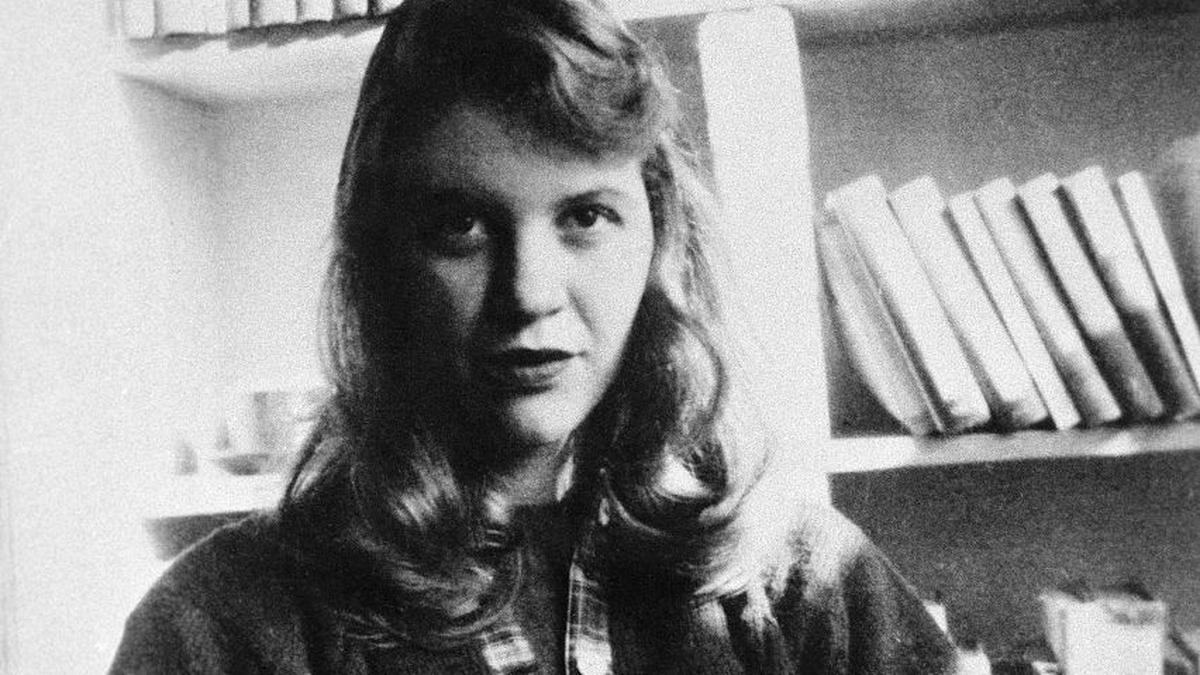
A whole new Sylvia Plath | Interview with Peter K. Steinberg, editor of ‘The Collected Prose of Sylvia Plath’
The Hindu
Peter K. Steinberg works to change the narrative around Sylvia Plath, highlighting her achievements and skill as a writer of prose.
Writer and archivist Peter K. Steinberg has spent 30 years compiling, editing and archiving materials on the life and work of Sylvia Plath, who would have turned 92 today. Often seen in light of her tragedies and not her achievements and skill, Plath remains one of the most misunderstood writers/ poets of 20th century. Steinberg wishes to change this narrative. He has previously co-edited The Letters of Sylvia Plath (Vol. I and II), has written at least two dozen essays on Plath as well as a brief biography of the author for high school children.
The latest feather in his cap is the much-awaited publication of The Collected Prose of Sylvia Plath (Faber & Faber), which is the second prose anthology in Plath’s name after Johnny Panic and the Bible of Dreams (1977), edited by her husband Ted Hughes. Steinberg speaks freely of Plath’s writing and how it should be seen in the modern world. Edited excerpts:
I think I can only answer [this question] as a reader/ fan/ editor/ lover of literature. I do feel like Plath’s writings across styles are complementary and companionable pieces. The letters and journals often record the source experience for one of her creative writings, and it’s fascinating to see how she treats them; the act of transforming life into art… each enriches the other in countless ways. Bringing out all of Plath’s journals, letters, prose, and eventually poems, will truly allow her readers to see how all the works blend to make a beautiful tapestry of words.
Plath is in an unusual position concerning the genres in which she wrote. She is a poet and she is known primarily as a poet; but, yet, her best-selling work is her novel, The Bell Jar (1963). By bringing out these 217 works in The Collected Prose of Sylvia Plath, I hope it shows how seriously Plath took prose writing. One may be able to gain a better understanding of her storytelling abilities, her development of characters, and the themes which interested her the most. Also, to see how certain elements are developed over time. [Her] non-fiction [too] has been remarked upon by biographers and scholars but is still massively under-studied.
The ironic thing is that the “popular labels” are generally problematic and insensitive. In fact, I see them as simply a short cut; taking the easy way out with very little thought, feeling, or effort to dig a little deeper and give Plath her due as a human, a woman, a writer, and a mother, [especially] in the cultural context of the era in which she lived. Having access to these full, unabridged editions and to accurate and comprehensive biographies should help turn the tide but it’s likely going to take a generation to see attitudes shift in a significant way. I think Plath’s life is something we should celebrate, so I do not feel she’s been unduly subjected to scrutiny. The scrutiny though can be beneficial. Unfortunately, the period of time between her death in 1963 and, say, the publication of her unabridged Journals was such a significant period of time that most of the negative viewpoints are firmly grounded.
There’s no wrong place to start reading Plath. If one struggles with poetry, then perhaps the prose (creative or autobiographical) is where one begins. Or, maybe they have an interest in her life: there are so many biographies now, both big and small, that can offer a good introduction. Heather Clark’s Red Comet (2020) is wonderful and monumental, but for a true novice it might be intimidating. Some biographies have aged well, some not so much. [Even] the Internet could be a good place, so long as the resource(s) are trustworthy.
I started reading Plath in 1994 and I was very quickly hooked on to her life and writing. One teacher said, “Everyone has a Plath phase.” So, it’s been a 30-year phase for me! I’m in the process of retiring from all this as I have done everything, and more, that I could ever have wanted to do. I’d like to try writing beyond Plath, yes. But it’ll be an interesting period of adjustment as I move away from being so minutely involved. I feel like I have been incredibly lucky and fortunate to help shepherd [her work] into the world. There were challenges, of course, but I just simply wanted as much accurate information about Plath to be made available to as many people as possible.

 Run 3 Space | Play Space Running Game
Run 3 Space | Play Space Running Game Traffic Jam 3D | Online Racing Game
Traffic Jam 3D | Online Racing Game Duck Hunt | Play Old Classic Game
Duck Hunt | Play Old Classic Game











